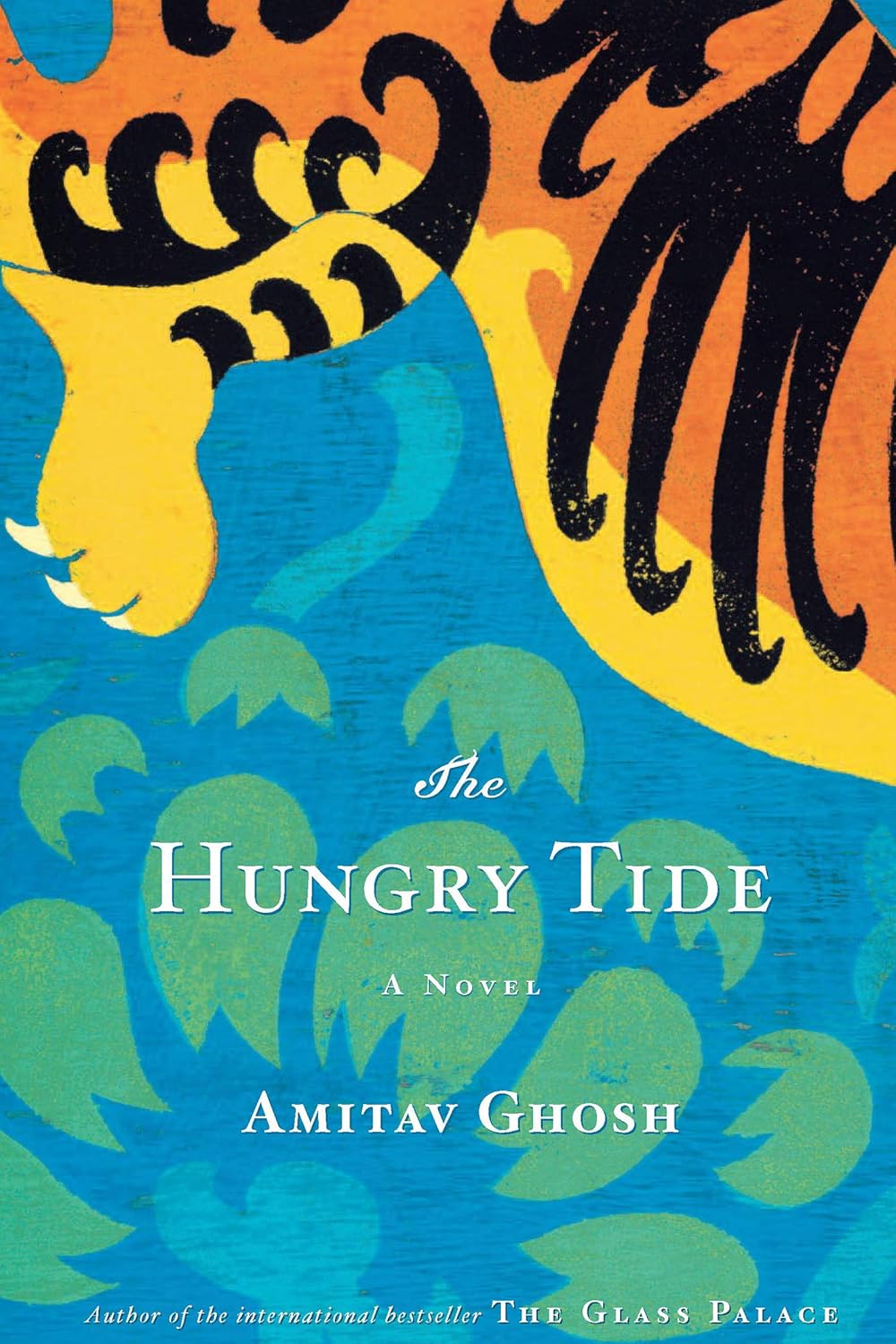
Piya, an American Cetologist of Indian descent, visits the Sundarbans, tiny islands in the Bay of Bengal, hoping to study rare river dolphins, the orcaella. En route to her planned viewing of the species, Kanai makes sure that Piya acknowledges his existence and hears of his accomplishments as a professional interpreter. Kanai’s aunt lives on the fictional Lusibari island, where Piya hopes to study, and his mission is to read a narrative left by his late uncle, which documents personal and general history, biology, climate, and geology of this area of northeastern India and southern Bangladesh. Kanai and Piya’s stories run parallel throughout most of the novel until they become entangled and intertwined.
Although Piya’s parents spoke Bengali, she spoke only English. Her inability to speak the local language causes problems in her initial encounters with locals. Still, it turns out that the person who helps her find the orcaella, Fokir, can communicate without words. As a matter of fact, Fokir, who is functionally illiterate, trusts his instincts for his local fishing business. A beautiful chemistry develops between Piya and Fokir, as both have honed their observational skills and appreciate the value of the natural wildlife. Fokir, although of a lower class and uneducated, realizes more about the danger of crocodiles and tigers than Piya and other characters do. Their communication grows as the novel develops, and Piya, who has sophisticated research tools and a college degree, learns from Fokir.
Communication habits are a theme in the novel. Some characters who have developed advanced communication skills in their studies and careers struggle to express their thoughts to one another. We learn much history through Kanai’s reading of his uncle’s journal. Words are less valuable than actions when danger befalls the characters. The animals —tigers, crocodiles, and dolphins — have communication systems that Piya and Fokir study, albeit in different ways. A traditional Bengali tale about Bon Bibi, a forest goddess worshipped by both Hindu and Muslim inhabitants of the Sundarbans, ties the novel’s various parts together, as they all learn of her legendary ability to protect the people from danger. The legend serves as a guide for respecting nature and honoring the need for balance when navigating the tidal region. Survival is paramount, but the characters must also consider conservation and respect when they face terrifying events.


